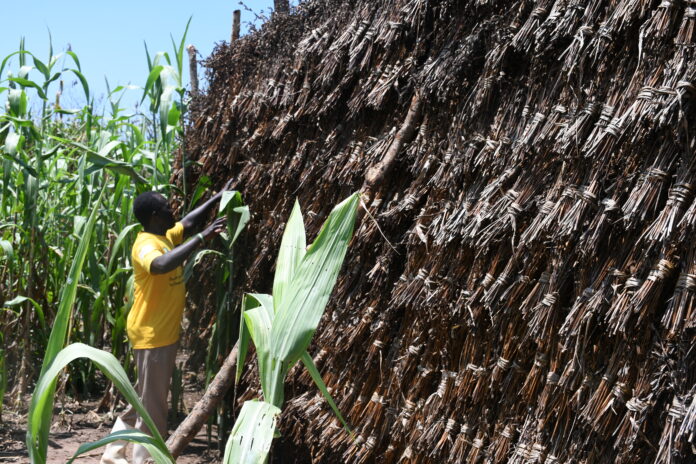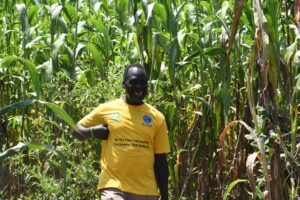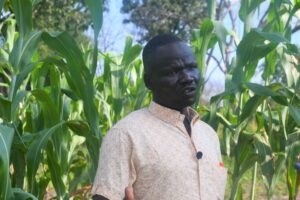
By: Ginaba Lino
A group of farmers in Mitorodo Payam of Wulu County Lake State explained that they were able to earn up to 15million South Sudanese pounds (about $3,333) from the sale of their farm produce this year.
Speaking to Catholic Radio Network, the Chairperson of Mitorodo formers Cooperative Society Emmanuel Madanga says with support Oxfam in South Sudan through the BMZ and Sweden International Development Agency (SIDA) project, they were able to expand their farmland from 56 hectares to 138 Feddan and had a bountiful harvest last season.
Madanga stated that Oxfam provided them with Seeds, and other agricultural tools like Ox-plough, and hired tractors for bush clearing plus provision of tricycle to ease harvest.
He added the support they got from Oxfam have changed their daily lives, citing that they are able to treat themselves from the money they got from farm produce, send their Children to good schools among others.
“Yes, our live have changed because in our group, we have money for an emergency like sickness, school fees for our children even our members, if he or she is sick we can get money from our account and treat the person.The money we got from the sale of last season was 15 million South Sudanese pounds, and the money is divided into three. The first is to expand our farm using the money we earn, the second is for motivation for ourselves, the third is for sickness if any of us fall sick or the family, but not only that, we also have plan of how we can open other business in Lake State and also in Juba.
Madanga explained that the money they got from the farm produce is also used for weeding and hiring other workers to support them with the activities in the farm.
Emmanuel appreciated Oxfam for the great support, urging them to also extend their support to other farmers in different areas who need to be supported.
The Chairperson of Mitorodo farmers explained that his perception about farming has improved due to the training he gained from Oxfam.

“Before I use to farm using hand and, I use local material for beehives to make honey, those are the work I use to do before. But Oxfam came and told us to form a group so that they can support us. Oxfam supported us with farm tools like, ox-plough for digging, hired tractors and variety of seeds. We are a team of 35 people and last year we had 56 hectares of land but this year our farmland has expanded to 138 feddan.”
Oxfam did not bring seeds only, but they also brought tractor to clear the bushes.
Madanga mentioned that the main challenge they face is lack of water. The only available water point near the farm is about 3hours walk away this has made their work difficult.
He appealed to the government and other non-governmental organizations to support them with water point and grinding machines.
Joseph Machok Paul, Chairperson for Donyoli-Makada farmers’ Cooperative said he first heard about the farmers group from his friends in Wulu then he came back to the village to organize themselves so that they can also benefit from the support given to cooperative farmers by Oxfam in South Sudan.
Machok highlighted that their group is relatively new to this initiative but last season they managed to have small savings from sale of their produce.
“Oxfam supported us with goats which we didn’t have before and agricultural tools like seeds. also, our Children were unable to go to school, but now they are going to school these are the things which have changed in our daily lives. Donyoli-Makada earned 1.5 million South Sudanese pounds from 250 sacks of different products produced last season” Joseph explained.

Joseph stated that the challenge they are facing is the issue of water and the pest that destroys the crops in the farm.
“Our future plan is to open big food store in Juba to be able to export our products to other neighboring countries and also in the ten states, currently we are farming on 120 feddan.” Joseph narrated.
The Chairperson of Donyoli-Makada calls on the government to support farmers with tractors so that the people of South Sudan can be free from food insecurity.
